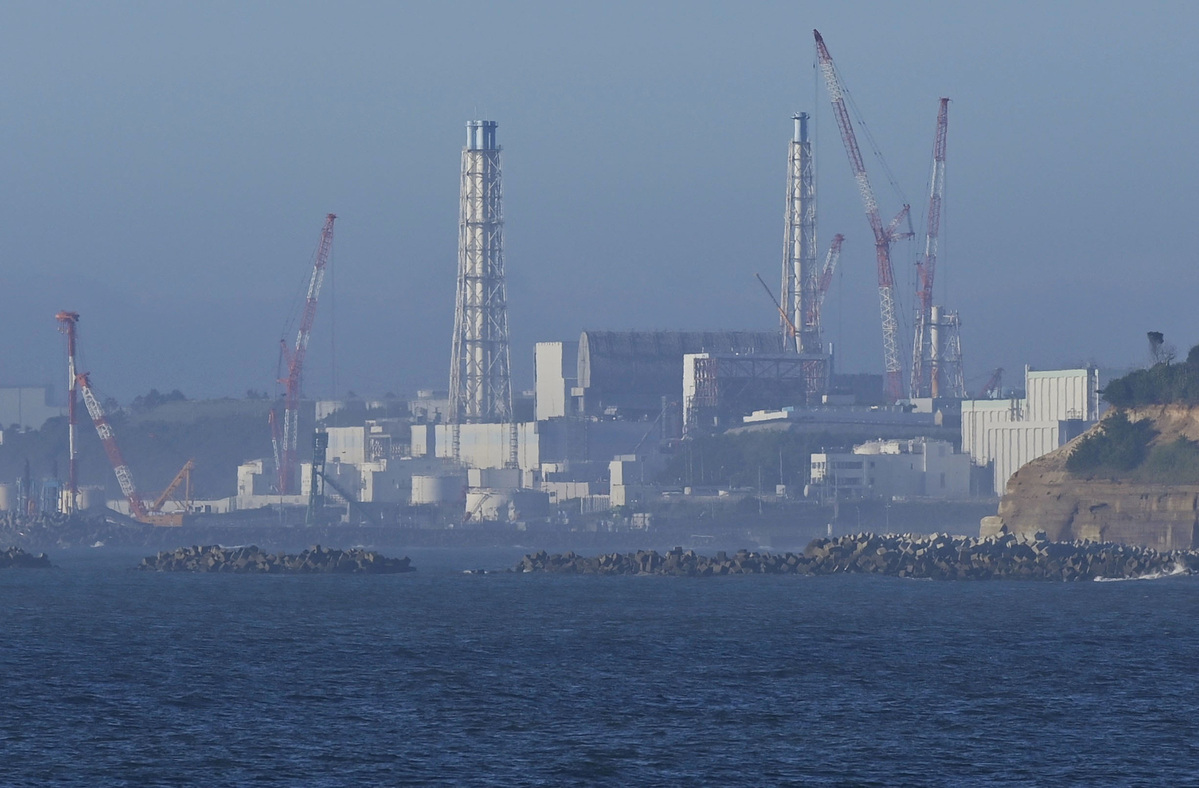Pacific Islanders urge Tokyo to rethink toxic water release
By KARL WILSON in Sydney | China Daily | Updated: 2023-08-24 09:42

As Japan schedules Thursday to start dumping over a million metric tons of nuclear-contaminated wastewater from the disabled Fukushima nuclear power plant into the Pacific Ocean, scientists and conservation groups are again appealing to Japan to rethink its plan.
James Bhagwan, a Fijian anti-nuclear activist and general secretary of the Pacific Conference of Churches, a regional ecumenical organization, pointed out that a report from the International Atomic Energy Agency, or IAEA, which said Japan's plans to release treated water from the Fukushima nuclear power station are consistent with international safety standards, has been "disputed by a panel of independent global experts" appointed by the Pacific Islands Forum, or PIF.
One of those experts is Robert Richmond, director of the Kewalo Marine Laboratory at the University of Hawaii at Manoa. He said on July 17: "The peoples of the Pacific did not contribute to the present problems … but have much at risk for generations to come."
On July 5, Richmond told the BBC's Newsday program: "We've seen an inadequate radiological, ecological impact assessment that makes us very concerned that Japan would not only be unable to detect what's getting into the water, sediment and organisms; but if it does, there is no recourse to remove it … There's no way to get the genie back in the bottle."
Analysts disagree with Fiji's Prime Minister Sitiveni Rabuka, who turned to back the Japanese plan after meeting with Japanese visitors, saying recently that he is satisfied that Tokyo has met all its obligations as set out by the IAEA.
The Tokyo announcement follows months of bitter debate on what the discharge will mean and concerns over the impact on the ocean.
Bhagwan said the Pacific has a long legacy of being a dumping ground when it comes to nuclear waste. He was referring to French (1966-96) and the United States' (1946-62) nuclear tests in the last century, the impacts of which are still being felt today by local people.
The Fiji-based Alliance for Future Generations, a youth advocacy group, is not convinced that dumping nuclear-contaminated water into the Pacific is the best option.
Far-reaching impact
"The decision to release the Fukushima nuclear wastewater into the Pacific Ocean is one that has far-reaching consequences for the entire Pacific region and beyond," the group said in a statement posted on its website.
"The disposal of nuclear waste poses serious risks to marine life and human health, and any decision in this regard must be based on rigorous scientific evidence and must prioritize the well-being of both current and future generations."
David Krofcheck, a senior lecturer in physics at the University of Auckland, told China Daily that no matter how well the water is treated, there is going to be a public perception problem.
"We need to be aware of the difference between tritium and carbon-14 on the one hand, and the radioactive fission products which tend to remain in the human body on the other hand," Krofcheck said.
"Tritium could still get into the food chain via buildup in underwater plants. This organically bound tritium still decays with a half-life of 12.3 years and it stays in the human body for about 10 days, the biological half-life, before excretion."
Tony Hooker, director of the Centre for Radiation Research at the University of Adelaide, said there is no evidence at this stage that shows tritium is harmful to the environment or human health. "So long as the water is treated or cleaned appropriately and monitored to ensure that any other remaining radionuclides are removed, it will be safe," he said.
That said, he noted that alternative solutions have been raised and could be investigated further.
























